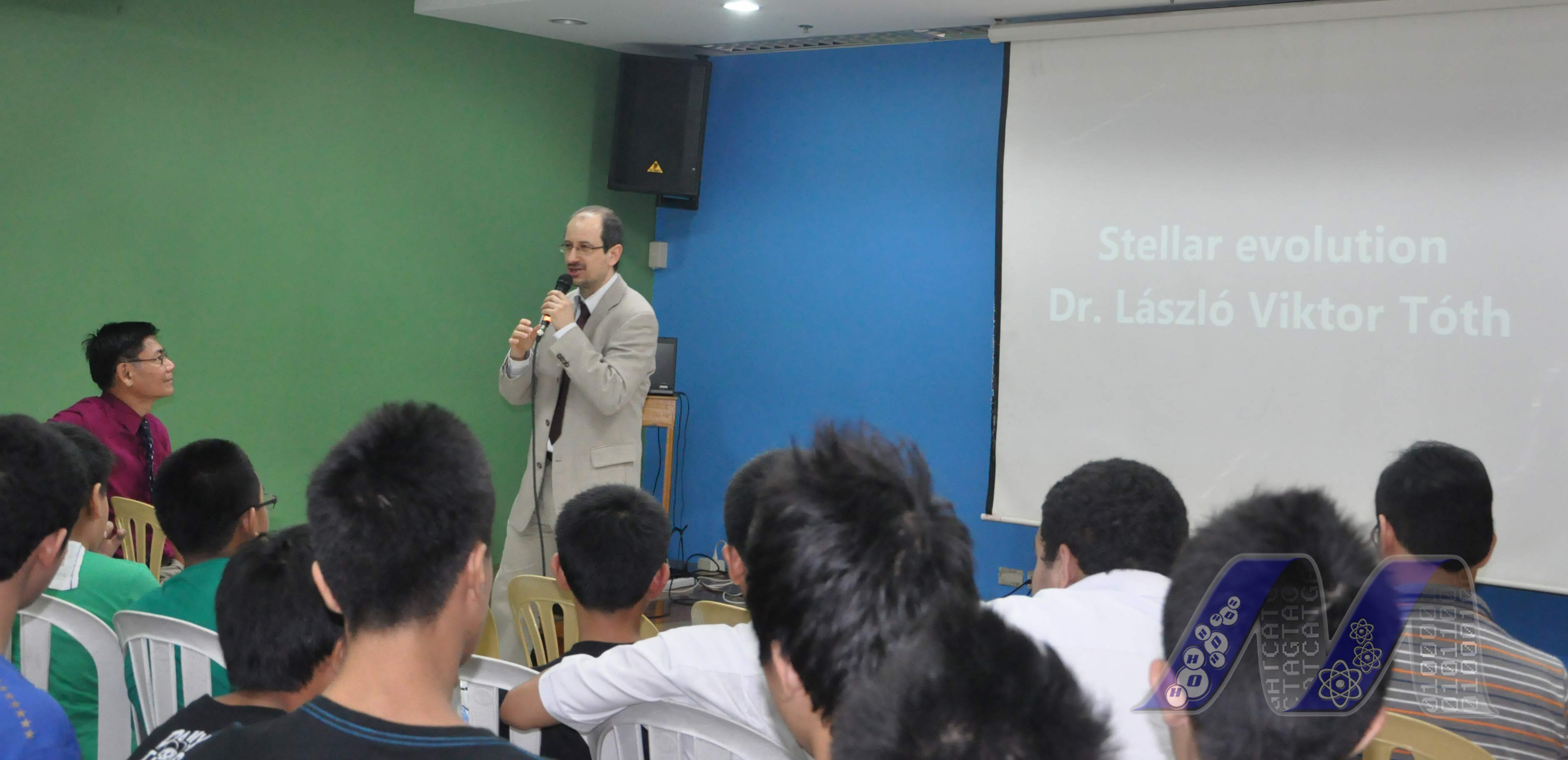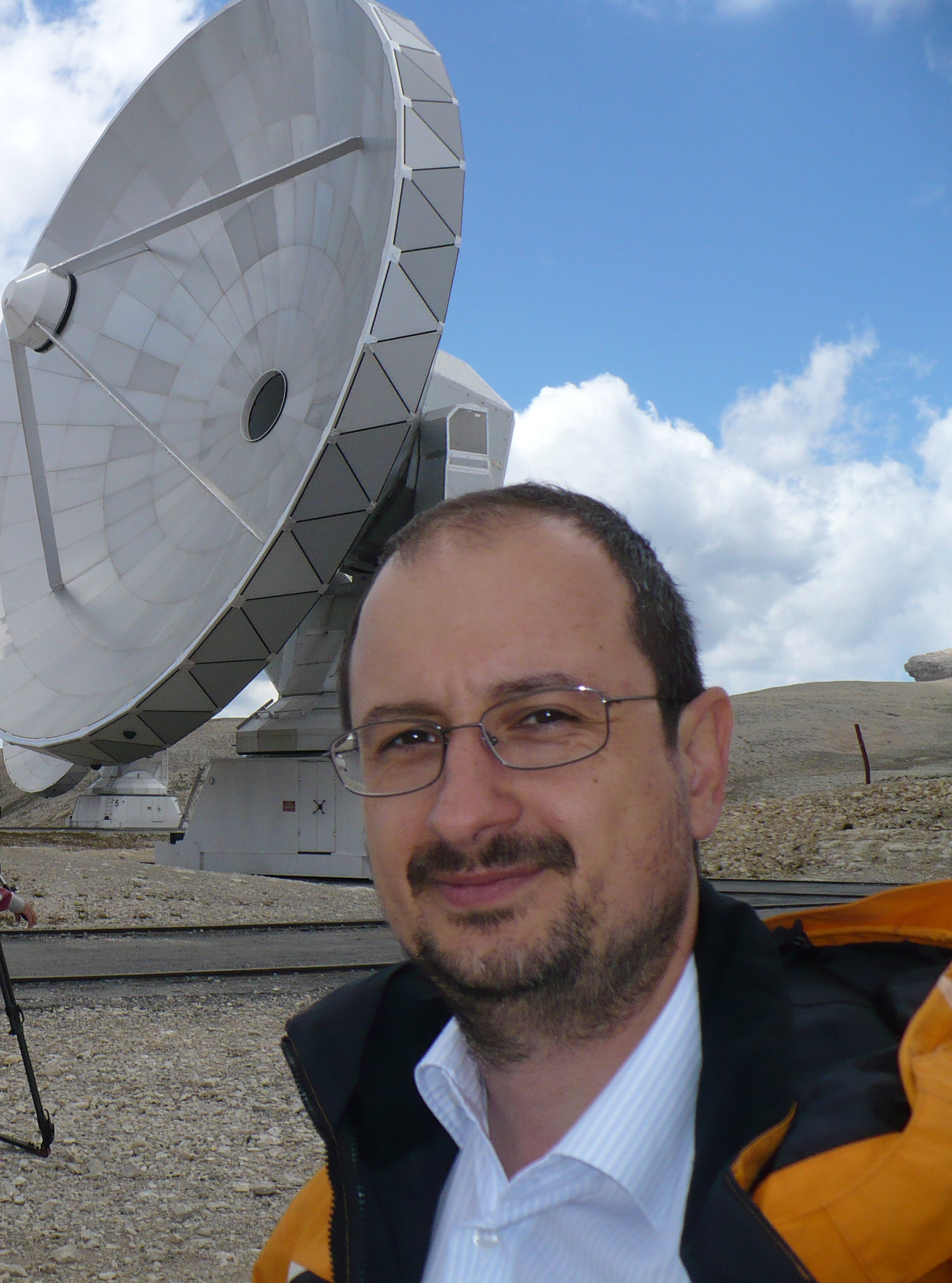News
Hungarian expert visits Malayan High School of Science; piques Malayans’ interest in space science
Wednesday, June 26, 2013
Hungarian astrophysics scientist Dr. László Viktor Tóth gives a lecture on Stellar Evolution to Malayan High School of Science students, piquing their interest in space science.
Studying astronomy paves the way for various career opportunities, as it requires knowledge in math, chemistry, physics, and information technology.
During his recent visit, Hungarian astrophysics scientist Dr. László Viktor Tóth, an adjunct professor at E?tv?s Loránd University in Budapest, Hungary, shared this insight with hopes of encouraging Filipino students to take up the subject and eventually launch their careers in related fields.
In a lecture dubbed “Stellar Evolution,” Dr. Tóth shared with the students of Malayan High School of Science (MHSS) how stars are formed and how stellar evolution shapes the galaxy and changes the chemical composition of the universe.
Many Filipino students perceive astronomy as an interesting field of study. However, only a handful pursues it as a career, as it offers limited job opportunities, especially since space explorations are rare in the country.
"Astronomy is interesting, but we need a good knowledge of mathematics, physics, [and] chemistry to be able to understand it [as well as] information technology to do it. So it motivates us to be good in all those disciplines, making way for various career opportunities like becoming an engineer, a teacher, a computer expert, and so on," the Hungarian professor said.
Filipino astrophysicist Dr. Rogel Mari Sese said that the Philippines has taken the first steps to fulfill the interest of building a space agency. What remains to be done is collating and refining of the concepts so the space program can have a steady track.
For Dr. Tóth and Dr. Sese, a general education course could help pique the interest of the youth in space science. He believes that engaging them can help bring much-needed attention to the field.

Dr. Tóth is an adjunct professor in the Astronomy Department of E?tv?s Loránd University in Budapest, Hungary.
“For the Philippines, you have to start it from the lower level of education. Start it in high schools; educate the students, tell them about the things, inform them about the possibilities,” said Dr. Tóth.
He added that people who have completed courses on space science can teach astronomy in the grassroots level. This way, the process of educating the people about astronomy and building a space agency will speed up.
“There are several excellent research institutions in Asia, and I am sure that astronomy and space research will develop in the Philippines in the next years, so young and educated minds will be needed here,” he said.
The lecture gained positive feedback from MHSS students, since they have a background on the topic, which was taken in their Earth Science classes. Similarly, Dr. Tóth was very delighted to get such positive response.
MHSS, a subsidiary of Mapúa Institute of Technology, is one of the few science high schools that support astronomy as a career. To encourage the students, the institution holds various activities that would enrich student awareness and interest.
“As part of our curriculum, students are given activities like stargazing, projects and other outputs that will enrich their background in this field of science. To encourage our students to consider astronomy as a career, we often invite colleges and universities that offer the course during our career guidance programs,” Dr. Efren B. Mateo, principal of MHSS, explained.